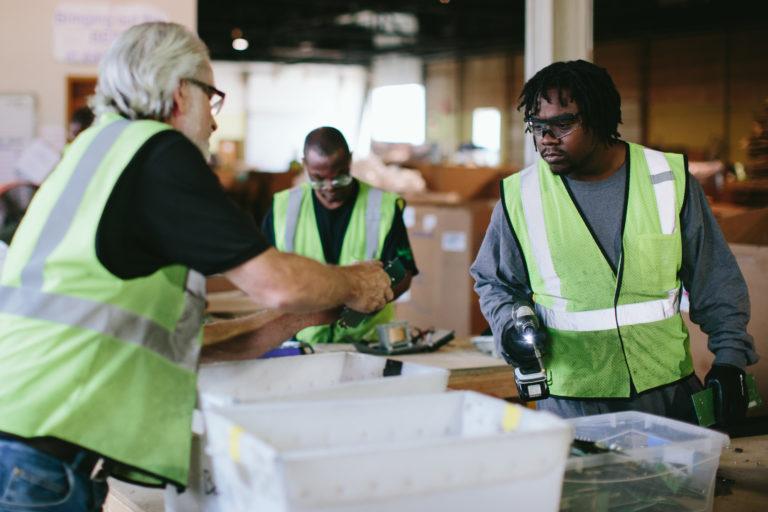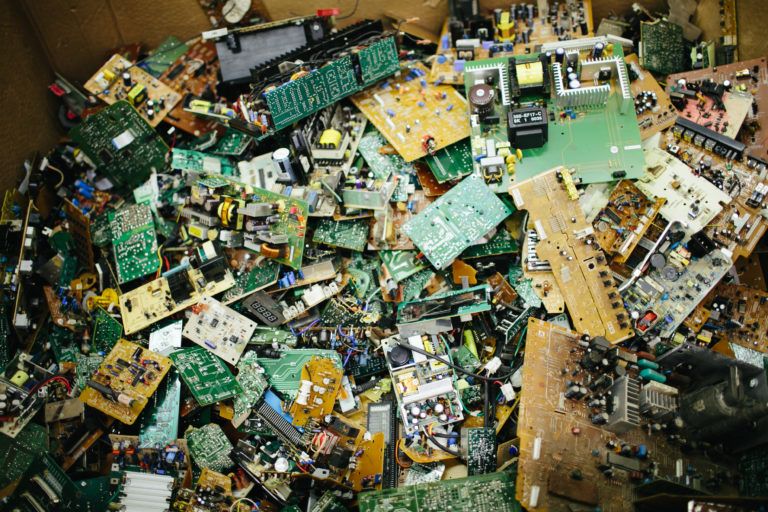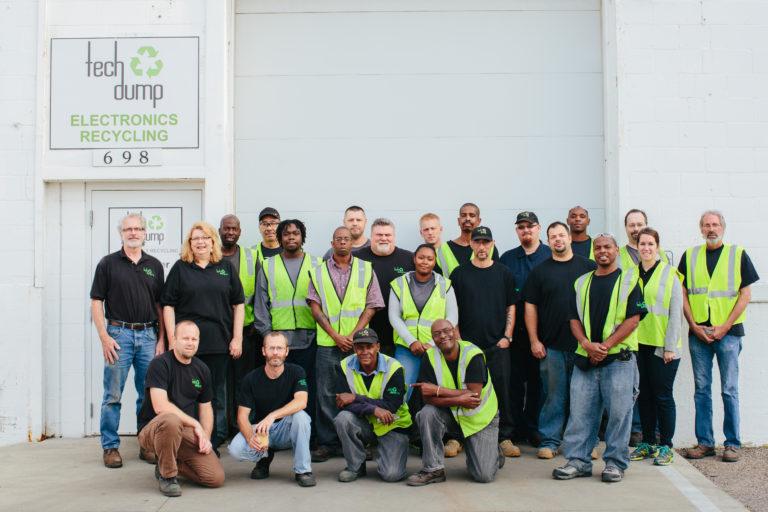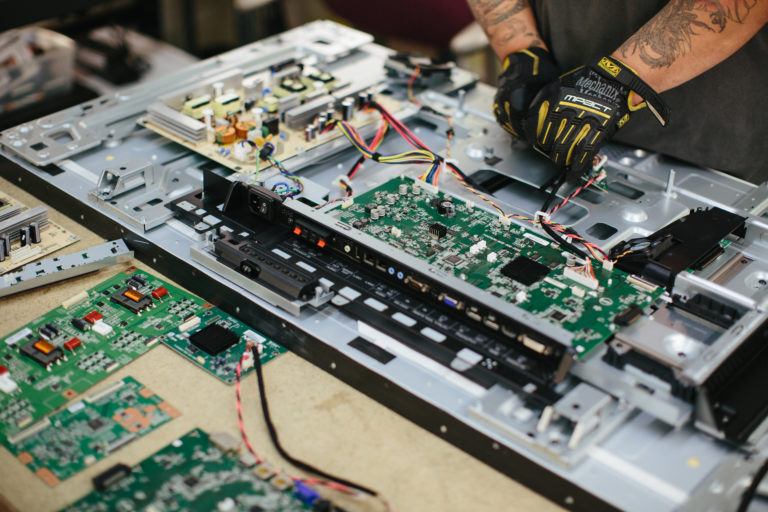Tech Dump/Tech Discount

There are two big things Amanda LaGrange would love to see change: No more stashing away our old phones, and no more defining people by their worst day. Luckily Amanda, CEO and founding board member of Tech Dump/Tech Discount, is in a position to help shift both of those harmful habits.
Doing Business for Good
Tech Dump and Tech Discount are social enterprises of the nonprofit Jobs Foundation. “Our business model uses electronics recycling and refurbishing as a laboratory for gaining work skills and experience,” explains Amanda. “That also happens to be the funding engine for how we pay for that laboratory.” By providing free and responsible electronics recycling in the Twin Cities, Tech Dump is also keeping precious metals out of the waste stream, creating jobs and pathways to meaningful employment, and offering consumers discounted electronics.
With the purchase of a 90,000-square-foot building in St. Paul, the organization is on its way toward achieving some ambitious goals: 100 full-time employees and $8.5 million in annual revenue by 2022. The organization is retaining a retail and drop-off site in Golden Valley, but all processing, data destruction, and repair work will happen in its renovated St. Paul building. The organization move into in its new home in early 2019.

Pathways to Employment
This level of growth is a tall order, but Tech Dump has already been on an impressive trajectory under Amanda’s leadership. It is the third largest electronics recycler in Minnesota, having collected over 25 million pounds of electronics since 2010. However, she’ll be the first to tell you that when it comes to the workforce development piece of their work, all credit for success stories go to the program’s trainees. “We are not ‘swooping in and saving the day,’” she underscores. “The majority of our staff has had experience in the criminal justice system. Most have at least one felony, which makes it really hard to find employment.” Systemic barriers like this and many others take both hard work and an opportunity to overcome; Tech Dump is merely providing the latter.
Amanda has also seen an increase in the prevalence of overlapping barriers, such as a combination of homelessness, addiction, a diagnosed learning disability, or a mental health challenge. In 2017, 67% of Tech Dump’s trainees had experienced homelessness, 55% were in recovery from addition, and 80% had a criminal history.
Despite these barriers, many Tech Dump job program trainees become managers within the organization and then move on to other opportunities. “We’ve had graduates re-establish relationships with their kids, get amazing new jobs, get married. Even those who I never thought would fly the coop have gone on to success in some way,” says Amanda. “As one current manager said, he knew how to make money in other ways, and a lot faster, but working with Tech Dump allowed him to be with his family and stay out of prison.”

A Human-Focused Business Model
The social enterprise business model helps differentiate Tech Dump’s jobs training program. Due to earned income support rather than philanthropic support, they have the flexibility to be less time-focused and more human-focused. For example, the organization shifted from a 9-12-month program to an 18-month training program. To Amanda, that makes a big difference. “Once graduates leave our program, we stay in touch…you can’t just say ‘it’s been 4 months and you can’t be involved anymore.’ The lack of adaptability has been one of the big workforce development breakdowns,” says Amanda. “We’re working with wonderful humans who have things happen when they happen.”
When it comes to other needed changes to the system, Amanda argues that we must start with a culture shift. “We all have something in our past that we wish we had done differently,” says Amanda, and firmly believes we need to stop punishing people over and over for former mistakes. At Tech Dump, people have an opportunity to start a new pathway and make different decisions. “That’s part of Tech Dump’s story, too: we try to do better every day.”
Financing Growth
As Tech Dump grew, Amanda, an accountant by training, crunched the numbers and knew that a new building made sense. However, to work with an interested investor, Tech Dump would need to put 25% down since they were a nonprofit and didn’t have any personal guarantees. “I thought the deal was dead,” admits Amanda. “Where was I going to find $1 million?” That’s when she turned to Propel Nonprofits. Tech Dump leveraged a loan from Propel to secure other financing to purchase the new building. “People keep asking me, ‘Why haven’t I seen anything about your capital campaign?’” laughs Amanda. “I guess that’s what nonprofits do without Propel.”
Even while focusing on the building project at hand, Amanda urges people not to overlook the small ways they can make a difference: “A drawer of phones: we’ve really got to kill that habit,” she states. “It’s TERRIBLE for the environment.” Use your current phone, computer, or other electronics as long as you can, and then take them to Tech Dump. You’ll be helping both electronics, and people, get a fair chance.
To learn more about what and where you can recycle, visit Tech Dump’s website. Check out Tech Discount to purchased refurbished electronics.
All photos: Monika Hubka, Open Air Journal

Related Services
-
Lending
Propel Nonprofits makes loans to a wide range of nonprofits of different sizes and fields of service to strengthen and expand programs, manage cash flow, and finance real estate projects. Our lending team determines the best approach to meet your needs, and sticks with you to address challenges.
